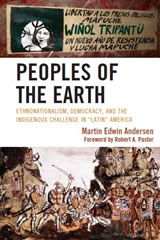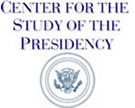By the time the measure was withdrawn five days later, it was clear that Mr. Morales, arguably the strongest leader in Bolivia since the 1950s, had suffered the biggest setback during his presidency. New graffiti decorating walls here and in La Paz, the capital in El Alto’s shadow, summed up the sentiment in two words: “Evo = Implosion.”
“We gave Evo a taste of his own medicine,” said Juan Alanoca, 34, a tailor who sells his wares on El Alto’s streets, referring to the role Mr. Morales, a leader of coca growers unions, played in organizing protests to destabilize previous governments. “We sent him a message, ‘Remember those who put you in power in the first place.’ ”
The double shock of Mr. Morales, a leftist leader who often lambastes market-oriented policies, proposing the measure and then seeing his own supporters rise up against it reflects a Gordian knot faced by governments in energy-rich countries: the drain fuel subsidies put on public finances, and the political risks involved in curtailing them.
Iran had long sought to cut back its costly and inefficient subsidies on fuel and other goods, which strained the state and held back the economy for years. But only recently has the government felt emboldened, or squeezed, enough to take action.
In Venezuela, gasoline sells for less than 10 cents a gallon, in what may be the most generous fuel subsidy anywhere, according to a study by the German aid agency GTZ. Venezuela’s president, Hugo Chávez, has criticized the subsidy but has not raised fuel prices during his nearly 12 years in office, possibly mindful of the riots that shook its capital, Caracas, in 1989. Hundreds were killed there after the authorities allowed gasoline prices to climb as part of an I.M.F. austerity program.
In Bolivia, the ferocity of the protests and Mr. Morales’s rapid capitulation opened an uncertain chapter for the president, who is at the start of his sixth year in office. In one major poll published this month by the newspaper La Prensa, 67 percent of respondents in Bolivia’s four largest cities said they disapproved of his performance.
“I don’t believe in polls and never have,” Mr. Morales, 51, said in a meeting here with foreign journalists. Sipping Coca Brynco, a green soft drink made here from coca leaf, he vigorously defended his plan to lower fuel subsidies, calling them “a cancer.”
Despite the problems faced by Mr. Morales, who is also accused of unfairly hounding political opponents, even his prominent critics here say it would be premature to foresee the twilight of his government, despite the public wrath over his attempt to cut fuel subsidies.
For one thing, Mr. Morales, an Aymara Indian who is Bolivia’s first indigenous president, remains by far the dominant political figure in a country where more than 60 percent of the population identify themselves as indigenous. “Evo still belongs to us,” said Marina Huanca, 35, an Aymara woman who sells coca leaf here.
Mr. Morales’s presidency has also been bolstered by a stretch of economic growth unrivaled in Bolivia’s turbulent recent history, largely a result of high prices for mineral exports and prudent economic policies. Even after spending heavily on cash payments to poor families, his government has still maintained a budget surplus.
Bolivia, with a population of about 9.9 million, remains one of Latin America’s poorest nations. But the economic vibrancy and relatively equitable growth are on display here in El Alto’s streets, clogged with vendors selling everything from imported appliances to used cars and monkeys for pets.
Down the winding road in La Paz, the boom becomes even more apparent. Moviegoers from a kaleidoscope of social backgrounds flock to a new 12-screen multiplex cinema in the Sopocachi district. Gas-guzzling Hummers vie for space on streets crowded with minivans.
The S.U.V.’s here offer a window into one of the dilemmas underlying the protests last month. Like oil-rich Venezuela, Bolivia heavily subsidizes gasoline, which sells here for about $1.89 a gallon, less than half the price in neighboring Brazil or Chile.
But unlike Venezuela, Bolivia relies on a different commodity, natural gas, for much of its export income. Bolivia imports refined gasoline and diesel, spending $666 million on subsidizing these fuels last year. As global oil prices climb, the subsidies could rise to $1 billion in 2011, Vice President Álvaro García Linera said.
Energy analysts say the low domestic fuel prices in Bolivia have dissuaded foreign energy companies from drilling new oil wells and increasing production inside the country. Mr. Morales’s nationalist policies have also limited foreign investment in Bolivia’s natural gas industry, prompting neighboring countries like Argentina, Brazil and Chile to seek new sources of the fuel.
This has deprived Bolivia of revenue and left Mr. Morales with little choice but to try to raise gasoline prices, a market-oriented move that his supporters immediately rejected.
“The solution to the subsidies was classic shock therapy from the playbook of the International Monetary Fund,” said Carlos Alberto López, a prominent energy analyst here.
Mr. Morales has been accused of juggling other conflicting policies. He expelled the American envoy here in 2008, and contends that Washington foments opposition to his rule. But his government still accepts American antidrug and development aid, which is expected to exceed $30 million this year.
One of the reminders of the turmoil around the fuel protests was how much of a role popular unrest still plays in Bolivia’s fragile democracy. Despite wielding greater influence than his predecessors, Mr. Morales discovered that he, too, could have his ambitions put into check by street protests.
“The ultimate Bolivian referendum,” said Jim Shultz, a political analyst in Cochabamba, “is a road blockade.”






